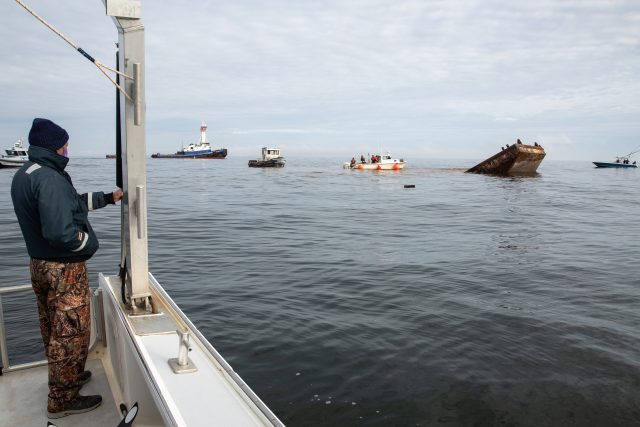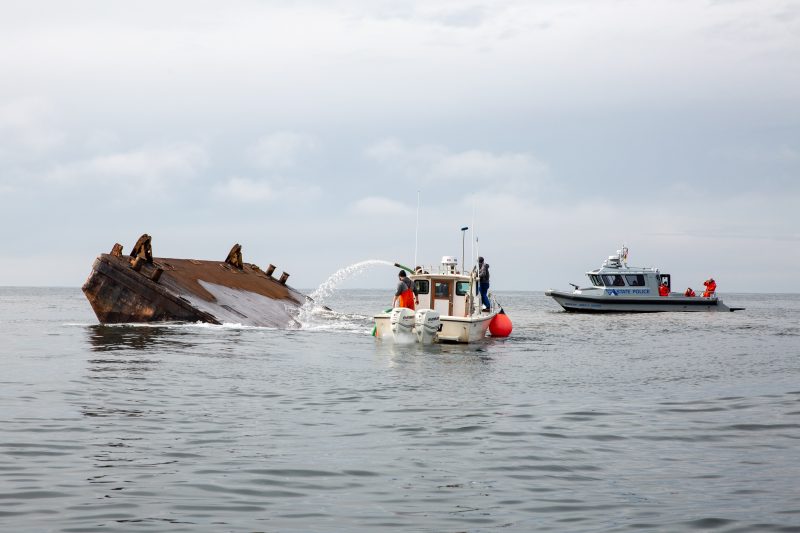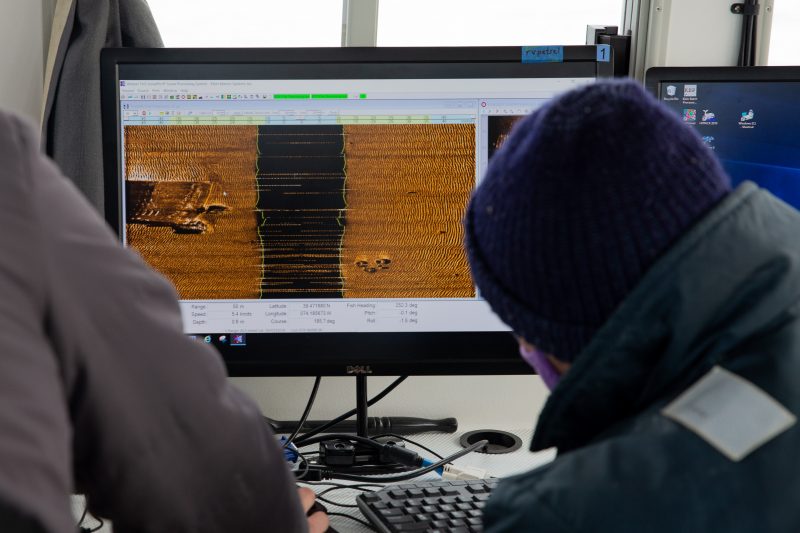
It’s not often that a boat sinking is good news. But this month three boats were intentionally sunk off the Jersey Shore to create an artificial reef and fish habitat at the Little Egg Reef, and a research project for Stockton University.
The boats – a 140-foot barge, a 45-foot tugboat and a small pushboat – will create new habitat for fish and invertebrates, and attract fish popular with sport fishermen.
Stockton University’s Marine Field Station and hydrography program will document the development and progress of the habitat created by the reef over an 18-month period. Student researchers will work on the program with hopes that the results may contribute to a better understanding of the ecological effects of future wind projects planned off the Jersey shore.
The primary sponsor of the Stockton project is Atlantic Shores Offshore Wind, with additional support from Ocean Wind/Orsted, the Beach Haven Charter Boat Association, R2Sonic sonar manufacturer, and ECHO81 hydrographic consulting.
“By providing student training, this project will also be a workforce development tool of our hydrography program,” Steve Evert, director of Stockton’s Marine Field Station, said in a press release.
Click the link below to view video of the barge sinking.
Evert said this sinking is a rare opportunity to follow a reef from its inception. Most wrecks have been there for 50 or 100 years. Stockton’s program will utilize a combination of multibeam sonar and remotely operated vehicles to acoustically map and observe the site.
“Over time, it is possible that we may be able to use the information to acoustically quantify fish use of these habitats,” Evert said.
Some of the fish of interest to fishermen, like tautog and sea bass, are difficult to quantify around submerged structures, Evert said.
“Fisheries science is beginning to look at acoustics to contribute to stock assessment data,” he added.

Bill Figley, retired reef coordinator for the New Jersey Division of Fish & Wildlife, and John Lewis, president of the Beach Haven Charter Fishing Association, watched the reefing process go down from the deck of the R/V Petrel.
Figley said the reefs give fish a reason to stay along our coast.
“The biggest problem we face off New Jersey is global warming, and the fish are moving north. Sea bass and fluke in particular are moving north. By building the reefs, it’s going to help,” Figley said.
New Jersey’s reefs, which have a total of 4,500 deployments, are healthy and continually under development, said Peter Clarke, New Jersey’s current artificial reef coordinator. There are now 17 reef sites off New Jersey.
The creation of the reef cost $100,000. The Beach Haven Charter Boat Association Junior Mates program helped start a fundraising program and $50,000 was raised mostly through the Sea Shell Resort and Beach Club in Beach Haven, a yearly fishing tournament and the Tom Hughes family. The funds were matched by Ann E. Clark Foundation/The Sportfishing Fund, Lewis said.








